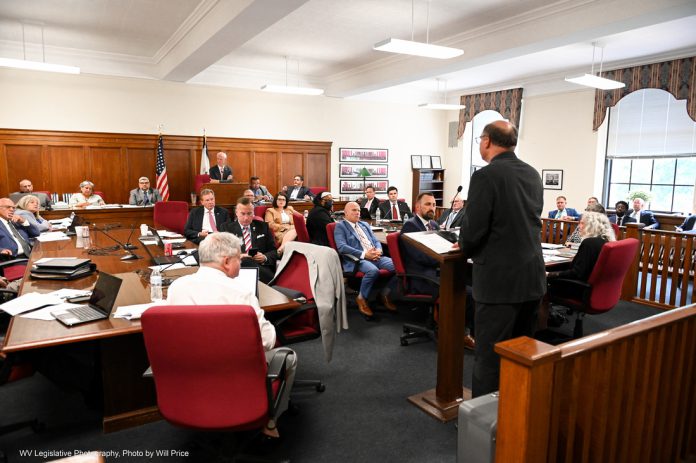The House Health and Human Resources Committee met today to discuss a bill to clarify abortion laws in West Virginia. The new law prohibits abortion in West Virginia.
The new definition for abortion is the termination of a pregnancy using an instrument, medicine, drugs or other substances/device. A medical emergency is defined as “a condition that so complicates the medical condition of a patient as to necessitate an immediate abortion to avert the patient’s death or for which a delay will create a serious risk of substantial and irreversible physical impairment of a major bodily function, not including psychological or emotional conditions.”
The bill contains new definitions for contraception, ectopic pregnancy, fetal tissue research, implantation, and in vitro fertilization. Contraceptive remains available in the state. According to counsel Plan B, a form of emergency contraception is protected in the definition of contraception as it “prevents pregnancy by interfering with the normal process of ovulation, fertilization, and implantation.”
The exceptions to the prohibition of abortion based on a medical professional’s opinion are non-viable fetus, ectopic pregnancy, and medical emergency. Miscarries and stillbirths are not abortions and medical procedures to treat such are protected. Accidental death or unintentional injury to a fetus during medical treatment is not abortion. Examples of this include chemotherapy for a pregnant cancer patient or keeping a pregnant person on medications for health issues.
The bill does not allow for exceptions for rape or incest. An amendment for this exception was proposed and failed.
The bill does establish penalties for violating this section of the code. Any person who administers drugs or other things to produce abortion or miscarriage shall be guilty of a felony and shall face three to ten years in prison. If the woman dies due to the abortion, the person shall be guilty of murder. Licensed medical professionals who violate this section of the code will be considered as having acted outside the scope for practice permitted by law or in breach of the standard of care of the patient and is subject to discipline from the licensure board and potentially loss of licenses. Under this article, a mother shall not be subject to a criminal penalty for any violation. Any medical professional acting in good faith and with the patient’s health in mind should not be subject to these penalties.
The bill passed the committee with the recommendation that it goes to House Judiciary next.

